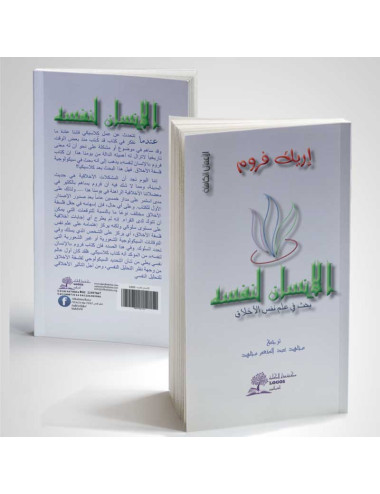The History of Christian Thought
Why would you read about the history of Christian thought? If you are Christian yourself, it helps you to understand about thinkers and the faith of the generations.
0.08 kg - 0.922 kg
Why would you read about the history of Christian thought? If you are Christian yourself, it helps you to understand about thinkers and the faith of the generations.
An examination of the Old Testament and later Jewish writings explores the evolution of the basic concepts of God, Man, history, sin, and repentance, and demonstrates the relevance of traditional beliefs in the contemporary world
A classic in its own time...The original self-help treatise that has inspired countless numbers of men and women throughout the world. Learn how love can release hidden potential and become life's most exhilarating experience. In this fresh and candid work, renowned psychoanalyst Erich Fromm guides you in developing your capacity for love in all its aspectsromantic love, love of parents for children, brotherly love, erotic love, self-love, and love of God. Read by a professional narrator...
The thesis of the book is that modern man, freed from the bonds of pre-individualistic society, which simultaneously gave him security and limited him, has not gained freedom in the positive sense of the realisation of his individual self.
Freedom, though it has brought him his independence and rationality, has isolated him, and made him anxious and powerless.
This isolation is unbearable and the alternatives he is confronted with are either to escape from the burden of this freedom into new dependencies and submission, or to advance to the full realisation of positive freedom which is based on the uniqueness and individuality of man.
This volume begins with the Renaissance and ends with Jansenism, covering- from the middle of the fifteenth to the middle of the seventeenth century. It takes in the great schools of spirituality of French Schools.
With the exception of the Salesian School, the others are divided between the great Catholic nations which filled the political stage of Europe during that period : Spain, Italy, and France.
This is a reproduction of a book published before 1923. This book may have occasional imperfections such as missing or blurred pages, poor pictures, errant marks, etc. that were either part of the original artifact, or were introduced by the scanning process.
This is a reproduction of a book published before 1923. This book may have occasional imperfections such as missing or blurred pages, poor pictures, errant marks, etc. that were either part of the original artifact, or were introduced by the scanning process.
First published in 1968, the year of international-student confrontation and revolution, this classic challenges readers to choose which of two roads humankind ought to take: the one, leading to a completely mechanized society with the individual a helpless cog in a machine bent on mass destruction; or the second, being the path of humanism and hope.
This was a very pastoral, insightful book on the emotional/psychological factors that can leave a person wrestling with deep doubt regarding the truth of Christianity - either those who do not call themselves a Christian but would like to believe, or those who do consider themselves a Christian but experience deep distrust and disbelief at times.
The book deals with the historical roots of the idea of alienation according to Erich Fromm, and the various manifestations of the idea of alienation as it appears in the writings of modern and contemporary philosophers, especially those influenced by Fromm such as Hegel, Marx, Heidegger, Marcuse and others. It also deals with the different dimensions of man’s alienation from himself and from his world, according to Fromm, using a comparative analytical approach.
What the future will bring? This issue, which opens Young undiscovered Self in this book, which is one of the most influential books there is no more important problem in our society today the plight of the individual in today's world the most systematic and rigorous.
The Philosophy of Humanistic Ethics vs. The Philosophy of Authoritarian Ethics
The Philosophy of Subjective Ethics vs. The Philosophy of Objective Ethics
Anthropology
The Heritage of Humanistic Ethics Philosophy
The Philosophy of Ethics and Psychoanalysis











